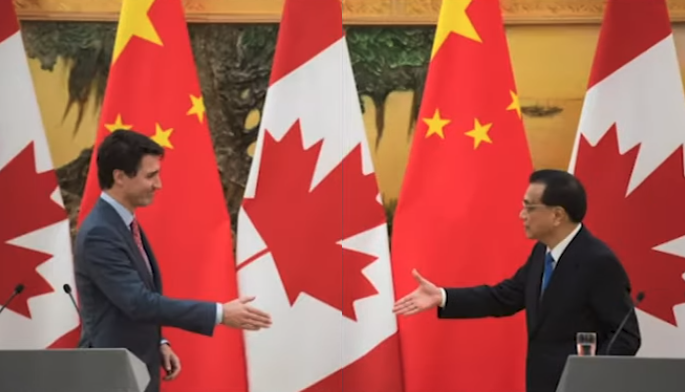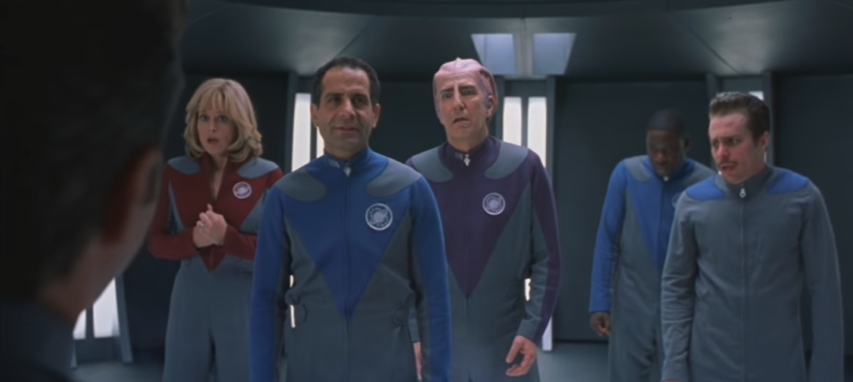Ted Campbell discusses that field of conflict that isn’t recognizably war, but is still an arena of struggle between state actors:
I said, about 18 months ago, that “Western leaders like Presidents Marcon and Trump, Chancellor Merkel and Prime Ministers Abe, May, Rutte, Trudeau, Turnbull all see ‘war’ as a binary choice ~ you’re either fighting or you’re not, while Putin and Xi see it as spectrum wherein actual armed conflict is only one of many, many choices. We, in the US-led West, are not ‘playing’ the same strategic ‘game’ as our competitors … that’s a mistake on our part.” War in the “grey zone” or a strategy of “constructive ambiguity,” as The Economist explains it, is the most likely form of great power competition for the foreseeable future.
[…]
There are, the report suggests, two overarching strategic concepts for responding to the grey zone threats:
- The report’s proposed strategic concept rests on four (interrelated) notions ~
– Shaping an allied strategy supportive of U.S. and partner objectives over the long term,
– Actively, now, deterring a handful some of the more dangerous forms of grey zone aggression,
– Preventing the day-to-day use of some of the more-elaborate grey zone techniques, and
– Maintaining resilience in the lower-level, persistent competition areas; and
- To implement the strategic concept, the report proposes a preliminary list of about three dozen response options for American and allied officials to consider, such as stationing permanent new military capabilities in key locations, anticipating political meddling and blunting the effects with information operations planned in advance, and denying the aggressor participation in key economic institutions.
That’s all well and good, but: how to implement such a strategy? What to do? How to do it? And who is to do it? The report recommends that:
- America and its allies, partners, and friends ~ and this must include Canada ~ need to decide what actions are intolerable in the grey zone environment. But, the report says, it is hard to stop, much less prevent, gradual, sometimes unattributable actions involving secondary interests, so identifying the actions that the US-led West will seek to deter is the one reliable way to draw a boundary or a “red-line” around the possible effects of grey zone encroachment; and
- The US and its allies should adopt a “multicomponent strategy” like the one outlined in the report, but we must all recognize that it will be of limited utility “if the U.S. government continues to lack a clear coordinating function with the responsibility for overseeing a renewed effort to gain strategic advantage in the gray zone.” The report concludes that an important part of any grey zone response strategy, therefore, is undertaking institutional reform, such as assembling purpose-built office in the U.S. government, and in allied nations and alliances, like NATO, with significant dedicated staff, to conduct real-time counter–grey zone campaigns.
So, what does this mean for Canada?
A couple of months ago I said that the world is changing and Canada must change, too. I made a few recommendations: I said that we have to have an interest-based strategy … one focused on our vital interests in the world. I suggested that we must be less reliant on one or two cornerstones, the USA and NATO, and, instead, build a better foundation with more friends and groups. This is, of course, the exact opposite of what Justin Trudeau has accomplished in the past 3¾ years ~ instead, he has alienated traditional allies, even Australia, and major trading partners like China and rising great powers like India. His ineptitude is stunning … our foreign policy is a national disgrace. We need to rebuild our once-sterling reputation for fair dealing and for doing a fair share. Finally, I said, we need to rebuild our hard (military) power so that we can use our soft power to good effect.
[…]
The point is that some grey zone operations are not “conventional,” and while some grey zone warriors are soldiers, many others are quite decidedly unmilitary … but, we’ve been there before, unconventional warfare is not new, nor are unconventional warriors, whichever side they might be serving. But, the grey zone is never the only area of operation. Just as soft power is only useful if one has enough hard, military power to make one’s voice heard, so grey zone operations are always part of a larger grand strategic plan that aims to secure quite conventional objectives. That’s why war in the grey zone must be fought by both conventional forces, as we fought the first Cold War, for example, and by unconventional forces which might be strange and even a little frightening to those used to seeing “‘war’ as a binary choice ~ you’re either fighting or you’re not.”
We, America, Australia, Britain, Canada, Denmark and, and, and, are being attacked in the grey zone now, whether we like it or not and whether we understand it or not. We need to defend ourselves in both conventional and unconventional ways … and then counter-attack. In fact, the war in the grey zone is being fought, sometimes, even now, on Canadian soil, by Canadians and some political parties and leaders are sometimes complicit in activities that do real, serious harm to Canada’s relations with other great nations. But the war in the grey zone, is, as I said, just above, part of a bigger, grand strategic plan that needs to be countered by both conventional and unconventional means. As much as we need to do (and avoid doing) things that impact the grey zone we must, simultaneously, be prepared to do things that strengthen our position in the “binary,” black and white world of conventional power.








